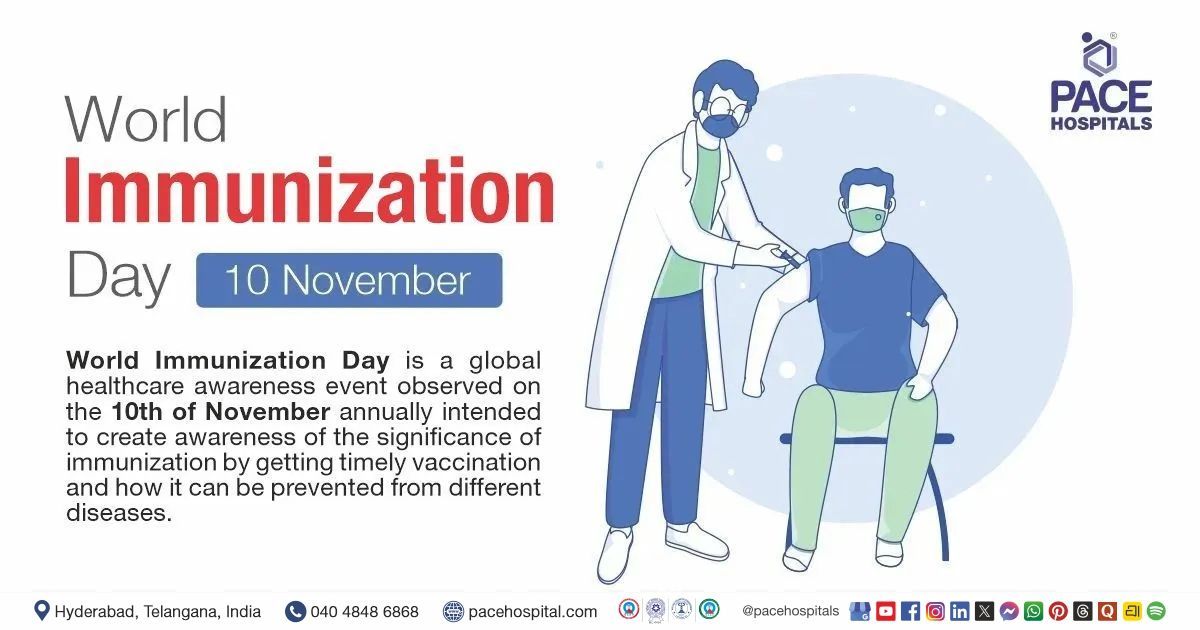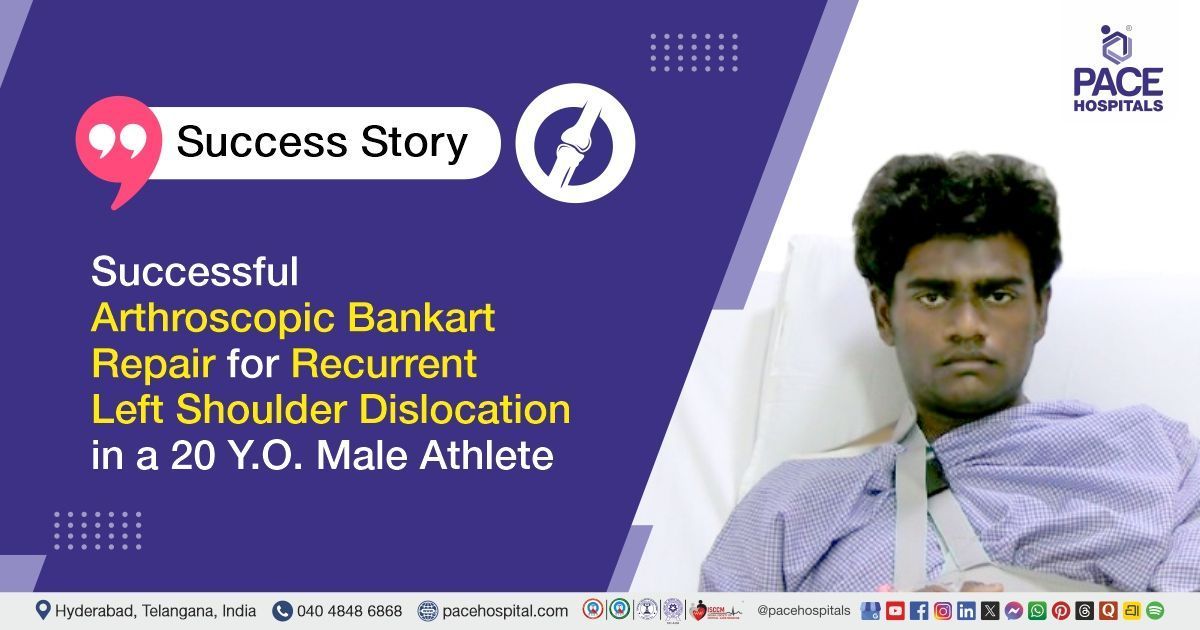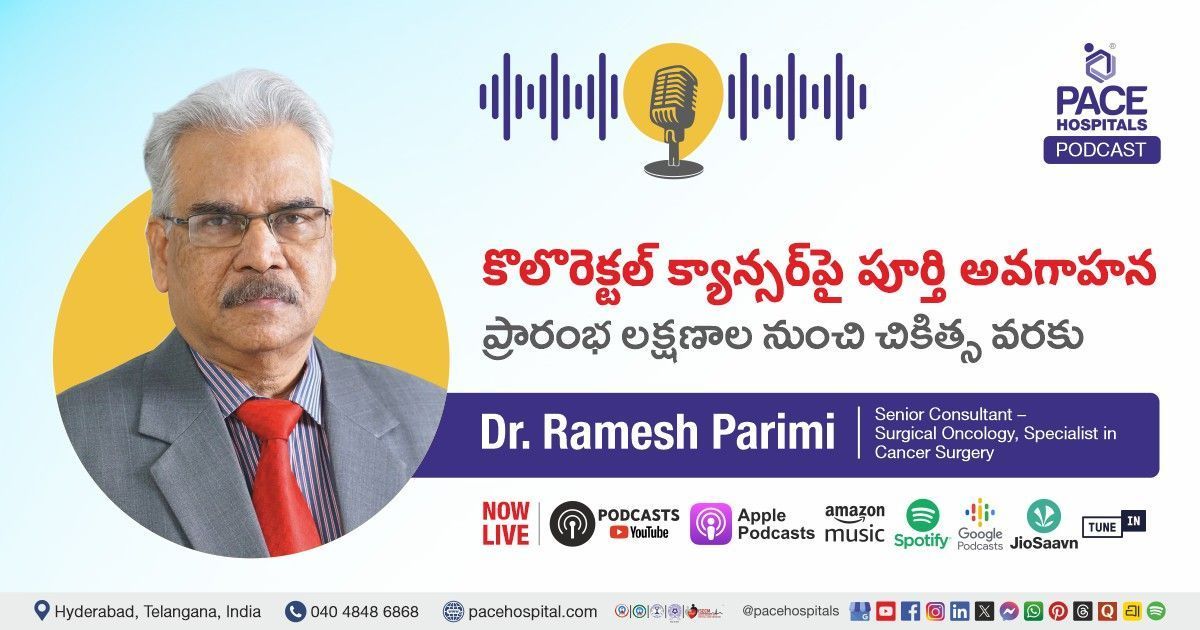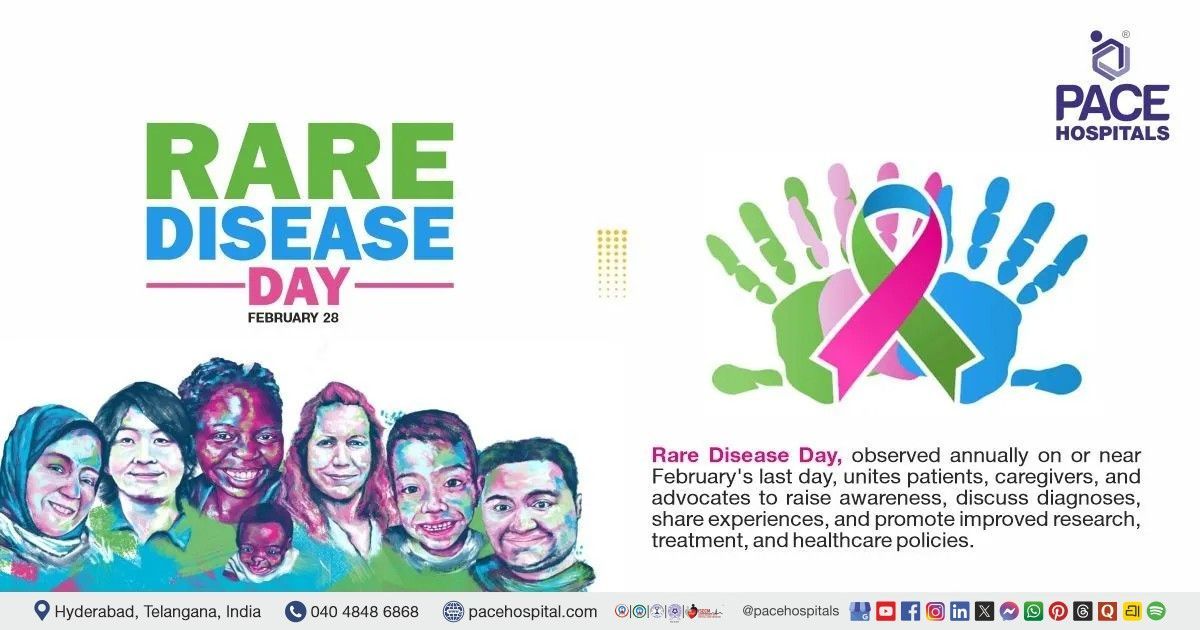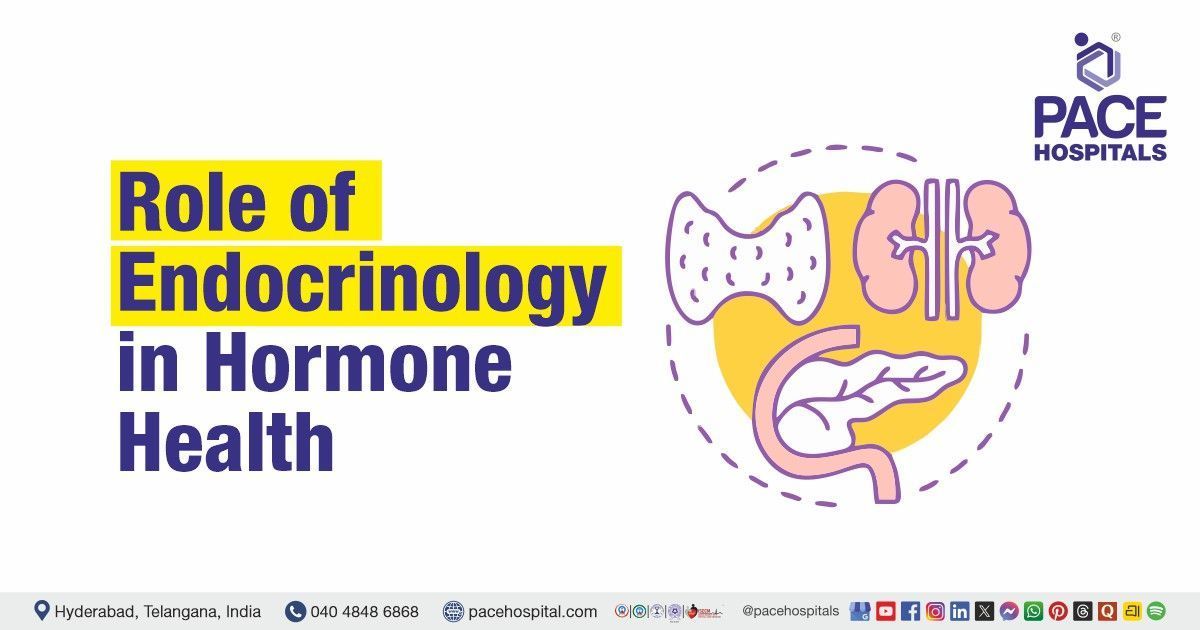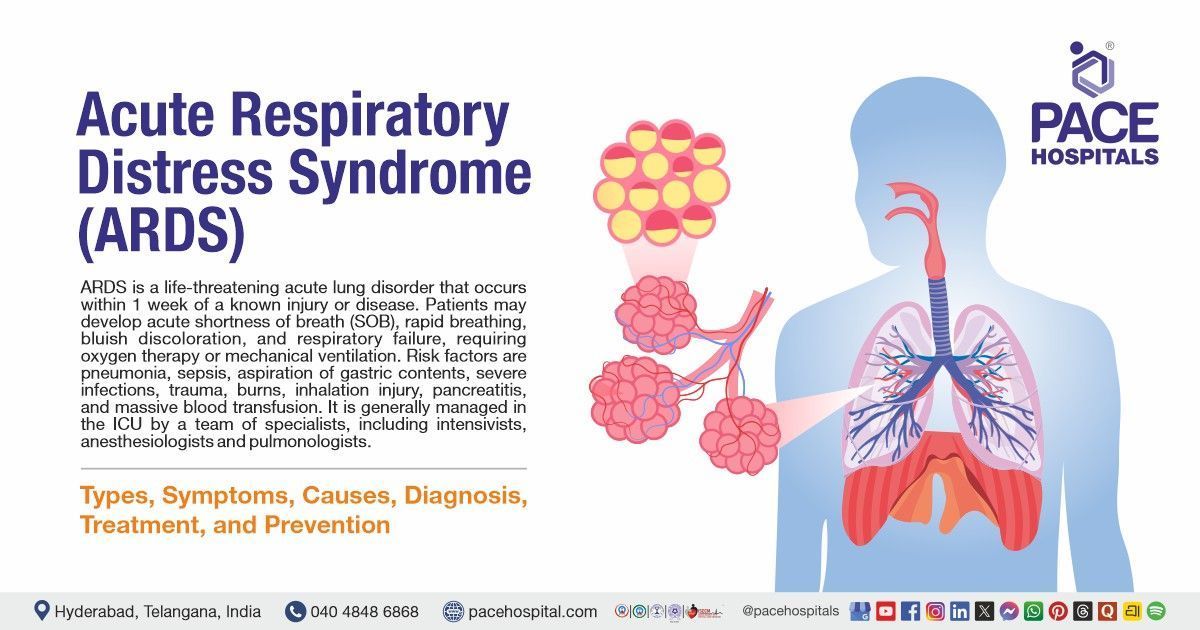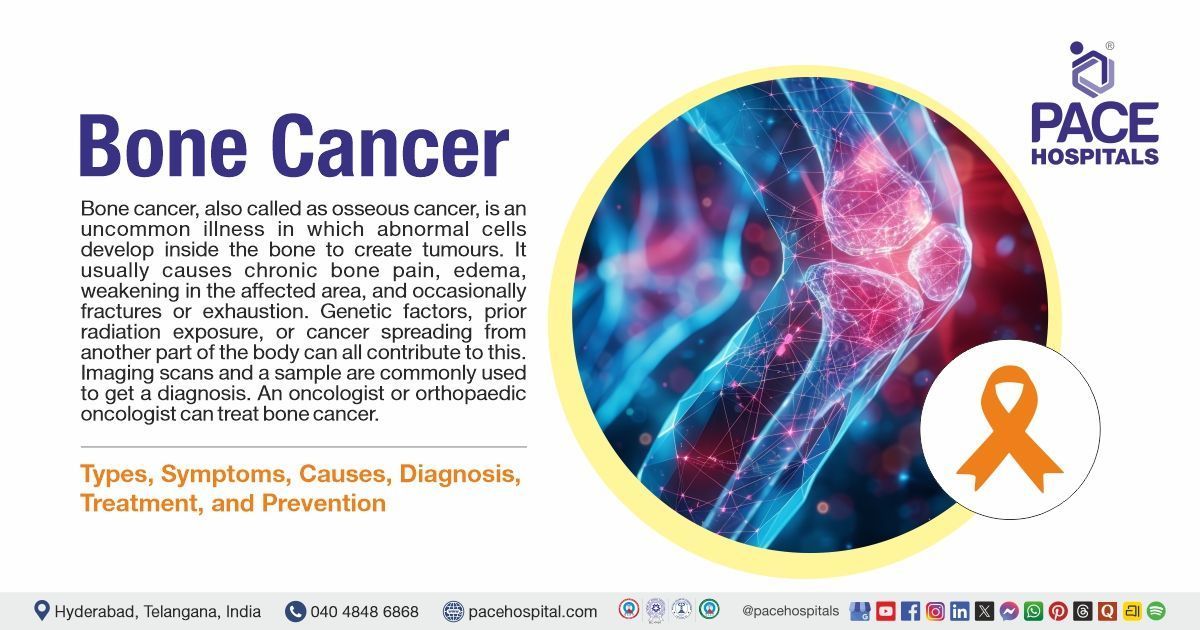World Immunization Day 10 November 2025 - Importance, Theme & History
PACE Hospitals
World Immunization Day, observed every year on November 10, was established by the World Health Organization (WHO) to raise awareness about the importance of vaccines and immunization.
This day serves as a global call to action, urging people, healthcare workers, governments, and organizations to prioritize vaccination efforts to prevent the spread of deadly diseases and protect communities. Immunization is one of the most effective ways to ensure public health, and World Immunization Day provides an opportunity to promote this message worldwide.
Importance of World Immunization Day
Immunization is one of the most powerful tools available to prevent infectious diseases, saving millions of lives every year. Vaccines not only protect the individuals who receive them, but also reduce the spread of diseases in communities, helping to create a barrier against outbreaks. The importance of immunization can be seen in its ability to:
- Prevents Disease: Vaccines prevent illnesses that can be deadly or lead to long-term complications. For example, diseases like polio, measles, and smallpox have been greatly reduced or even eradicated thanks to global immunization efforts.
- Protects Vulnerable Populations: Some individuals, such as infants, the elderly, pregnant women, or those with weakened immune systems, may be more vulnerable to diseases. Vaccines offer these groups a level of protection through herd immunity when vaccination rates are high in the broader community.
- Fights Emerging Threats: Immunization helps safeguard against new diseases, such as the rapid rollout of COVID-19 vaccines, demonstrating how vaccines can curb the spread of novel diseases and prevent widespread outbreaks.
History of World Immunization Day
World Immunisation Day was launched in 2012 by the World Health Organization (WHO) as part of a broader strategy to increase vaccination rates around the world and achieve universal immunisation coverage. It serves as a platform to remind governments and individuals of the critical role that vaccines play in preventing deadly diseases.
Historically, vaccination efforts have significantly decreased the incidence of many deadly diseases. The development of the smallpox vaccine in the 18th century led to the eventual eradication of the disease. In the 20th century, immunisation campaigns for polio, measles, and diphtheria, among others, led to significant reductions in global morbidity and mortality. The establishment of World Immunisation Day aims to continue this momentum by promoting continued progress in vaccine coverage and encouraging global cooperation.

World Immunization Day 2025 Theme
This year, 2025, the World Immunization Day Theme is “Immunization for All is Humanly Possible.” This theme highlight that everyone, everywhere should have access to life-saving vaccines and emphasizes the ongoing effort to reduce inequities in immunization coverage.
Year by year, the themes for World Immunization Day
World Immunization Day Theme 2024: Humanly Possible: Saving lives through immunization
World Immunization Day Theme 2023: The Big Catch-Up
World Immunization Day Theme 2022: Long life for all
World Immunization Day Theme 2021: Vaccines bring us closer
World Immunization Day Theme 2020: Vaccines Work for All
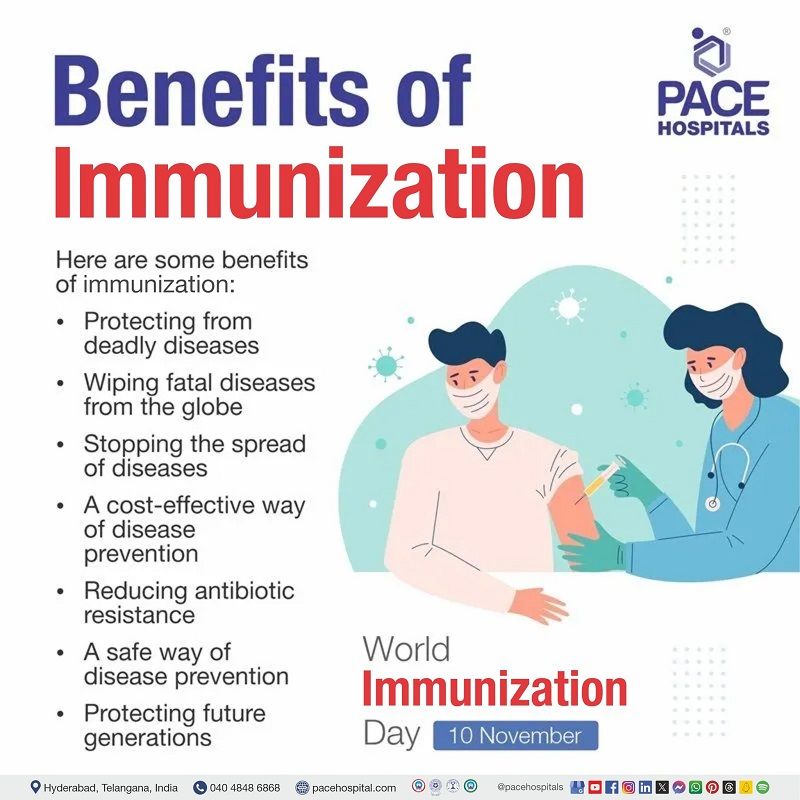
Benefits of Immunization
Here are some benefits of immunization:
- Prevention of Life-Threatening Diseases: Vaccines are a powerful tool in preventing serious and sometimes fatal diseases. Immunization prevents complications such as hospitalization, long-term health effects, and death that would otherwise result from the diseases.
- Community Protection: Widespread vaccination leads to mass immunity, which occurs when a large group of the population becomes immune to a disease, either through vaccination or prior infection. Community immunity makes it difficult for a disease to spread, protecting even those who cannot be vaccinated, such as infants, people with certain health conditions, and the elderly. This creates a collective shield against outbreaks.
- Reduction in Healthcare Costs: Vaccines are a cost-effective way to prevent diseases. Immunization programs save both healthcare systems and families from the financial burden of treating preventable diseases. The long-term savings from avoided hospitalizations, treatments, and long-term care due to vaccine-preventable diseases are substantial.
- Global Health Security: Immunization is vital for ensuring global health security. Vaccines not only protect individuals within national borders but also prevent the international spread of diseases. In a globalized world, infectious diseases can quickly cross borders, making immunization a critical component of preventing pandemics. The rapid development and distribution of COVID-19 vaccines highlighted how immunization can be a central strategy in controlling the spread of a new global health threat.
- Eradication of Diseases: The global success of vaccination campaigns has led to the eradication of smallpox and has brought polio to the brink of extinction. By maintaining high vaccination coverage rates, the world could potentially eliminate other diseases as well.
- Reduction of Disease Transmission: Immunization helps in reducing the transmission of infectious diseases, not only by preventing illness in vaccinated individuals, but also by limiting the pool of individuals who can spread diseases.
Global Efforts & Challenges
While there has been significant progress in increasing global vaccination rates, challenges remain. Access to vaccines in remote or low-resource settings, vaccine hesitancy, and misinformation continue to be barriers in achieving full immunization coverage. By raising awareness and addressing concerns, World Immunization Day encourages global solidarity and education to ensure that vaccines are accessible to everyone, everywhere.
World Immunization Day is not only a reminder of how far the world has come in the fight against preventable diseases but also an urgent call to action. It emphasizes the need for continued investment in vaccination programs, the importance of raising awareness about vaccines, and the collective responsibility to protect global health. This year, as we mark World Immunization Day, let’s work together to ensure that no one is left behind, and everyone has access to the life-saving vaccines they need.
Share on
Request an appointment
Fill in the appointment form or call us instantly to book a confirmed appointment with our super specialist at 04048486868

